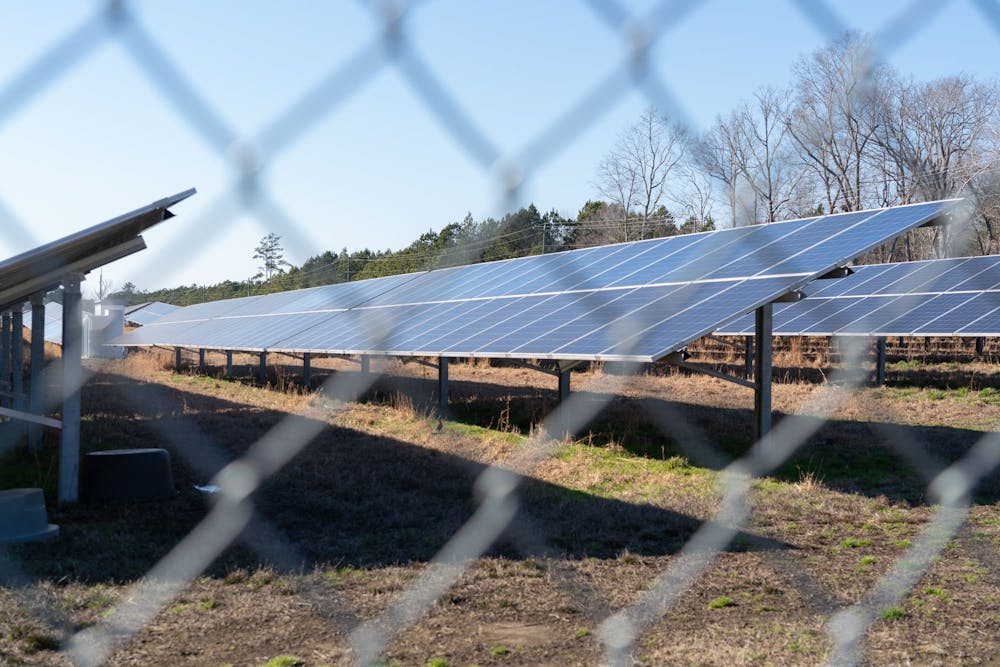Jim Warren, executive director of the climate-focused nonprofit NC WARN, said solar energy is significant in resolving the climate crisis. However, North Carolina has not been as successful as possible in implementing it.
“Despite a lot of corporate propaganda and greenwashing by Duke Energy and others, North Carolina has not grown with renewable power the way we should have,” Warren said.
Duke Energy's proposal
According to the November press release, Duke Energy's agreement would allow for new net metering tariffs for customers, create innovative pricing and incentives for residential solar customers, feature flat-rate design mechanisms and include cutting-edge retail rates that vary based on time of day and when the utility is experiencing peak demand.
Net metering tariffs are an arrangement between utility companies and solar customers in which residents who generate excess solar power will be compensated, David Neal, senior attorney at the Southern Environmental Law Center, said.
Randy Wheeless, a spokesperson for Duke Energy, said net metering is a contentious issue across the country. However, Wheeless believes the Duke Energy proposal will prevent North Carolina from running into issues that other states like California face.
“We came to a good agreement, we think, that will pay the true value of solar to rooftop solar owners when they send power back to the grid,” Wheeless said.
Neal said that, according to the agreement, the basic features of net metering will be maintained, but the netting will be changed from annually to monthly.
Abele said the settlement is robust and meant to continue upon the success of the rooftop solar industry in North Carolina. He said it will provide additional benefits to the grid and open the door for additional clean energy sources.
Concerns over accessibility
Warren is among one of the main critics of Duke Energy and this proposed plan. He said it will raise the monthly service charge and lower the amount of credit that solar customers receive for feeding excess power into the grid, among other things.
He also called for Duke Energy to step away from net metering.
To get the day's news and headlines in your inbox each morning, sign up for our email newsletters.
“We need a systemwide approach where all customers share in the growth and benefits of rooftop solar and other renewable technologies and not leave it to individual homes and businesses to have to pay for it themselves,” Warren said.
Warren also said solar companies will have a difficult time explaining this new proposal to potential customers.
“One of our other key concerns is this scheme makes it harder and harder for non-affluent people to be able to do solar on their own,” he said.
Penney said she fears this new agreement will negatively affect low-income consumers.
But Neal said billing is just being restructured, and the plan will not change the cost for solar customers in a typical month.
“Part of what we were able to achieve in this settlement is a durable platform for solar for years and years to come,” Neal said. “We are confident it will work for customers that want to adopt solar.”
Abele also said solar energy benefits ratepayers across the board because it drives value to the grid by helping reduce costs of operations. Another part of the agreement is to work on additional low-income programs, he said.
If approved by the North Carolina Utilities Commission, the agreement will go into effect next year.
@WaverlyMcIver
@DTHCityState | city@dailytarheel.com
CORRECTION: A previous version of this article incorrectly attributed a statistic relating to installed solars overall. North Carolina was previously second to that of California for the overall installed solar. The Daily Tar Heel apologizes for the error.




